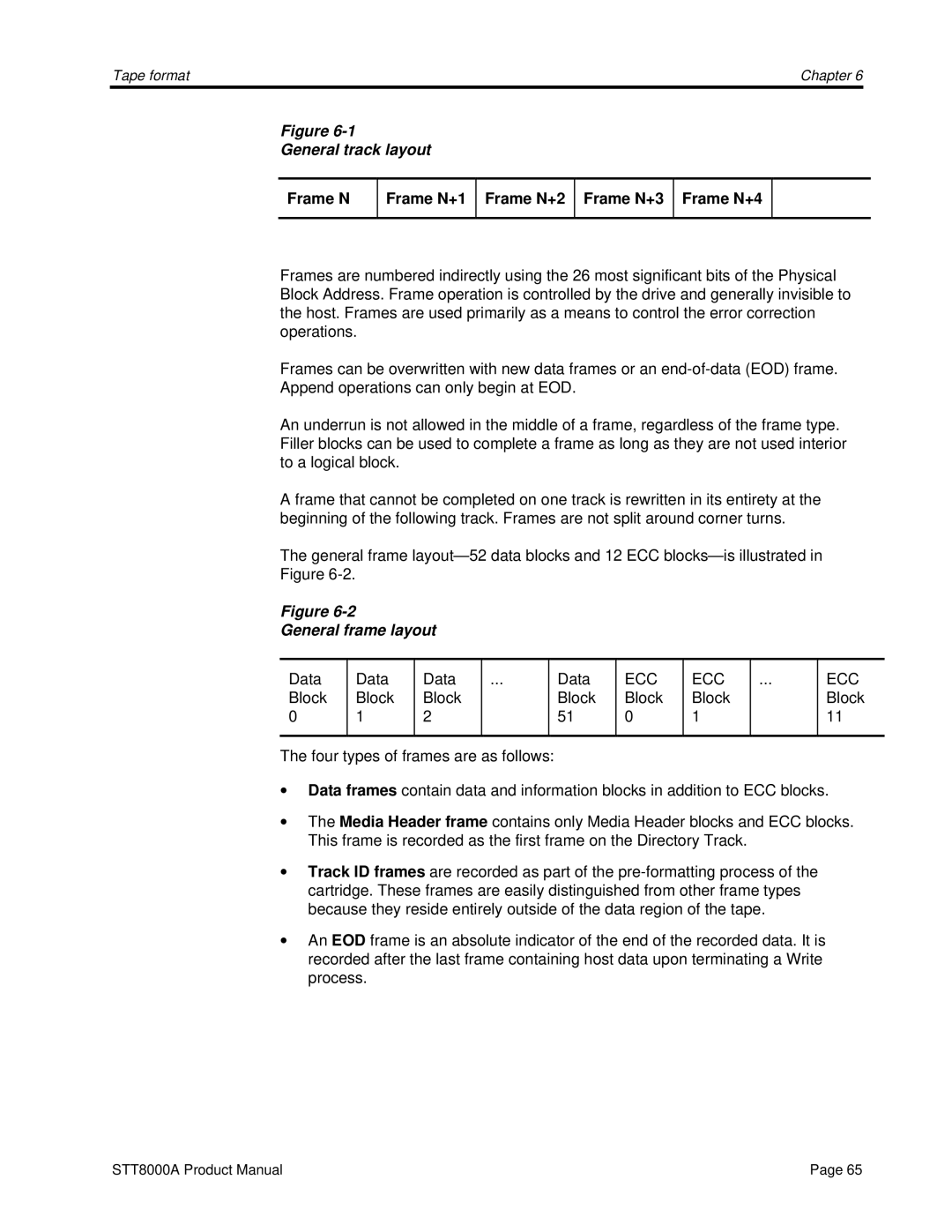Tape format | Chapter 6 |
Figure
General track layout
Frame N
Frame N+1 Frame N+2 Frame N+3 Frame N+4
Frames are numbered indirectly using the 26 most significant bits of the Physical Block Address. Frame operation is controlled by the drive and generally invisible to the host. Frames are used primarily as a means to control the error correction operations.
Frames can be overwritten with new data frames or an
An underrun is not allowed in the middle of a frame, regardless of the frame type. Filler blocks can be used to complete a frame as long as they are not used interior to a logical block.
A frame that cannot be completed on one track is rewritten in its entirety at the beginning of the following track. Frames are not split around corner turns.
The general frame
Figure
General frame layout
Data | Data | Data | ... | Data | ECC | ECC | ... | ECC |
Block | Block | Block |
| Block | Block | Block |
| Block |
0 | 1 | 2 |
| 51 | 0 | 1 |
| 11 |
|
|
|
|
|
|
|
|
|
The four types of frames are as follows:
∙Data frames contain data and information blocks in addition to ECC blocks.
∙The Media Header frame contains only Media Header blocks and ECC blocks. This frame is recorded as the first frame on the Directory Track.
∙Track ID frames are recorded as part of the
∙An EOD frame is an absolute indicator of the end of the recorded data. It is recorded after the last frame containing host data upon terminating a Write process.
STT8000A Product Manual | Page 65 |
